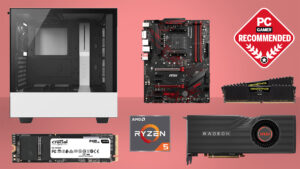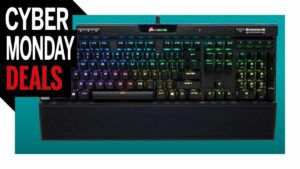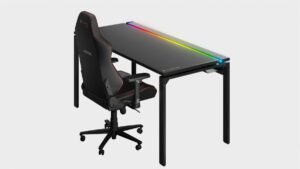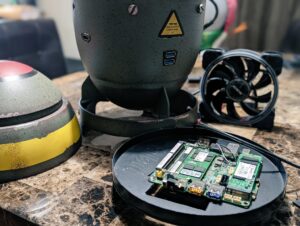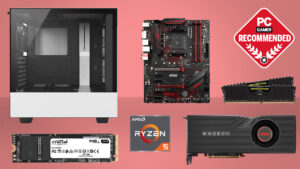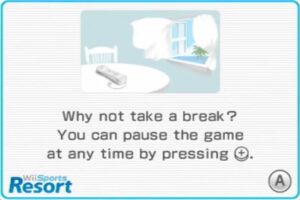I know you came here for hard drives, but the best 'hard drive' is actually an SSD in 2022. Hear me out: these are a much speedier way to transfer, and access important data, besides, the price of an external SSDs have dropped to the point where a 1TB portable SSD is incredibly affordable.
An external hard drive with spinning platters (rather than the solid state memory chips in SSDs), will still be cheaper. So if you're looking for masses of external storage, the higher capacity hard drives may well be what you're looking for. But when we say best, it's really the speed we're talking about as gamers.
If you need less space and more speed, I'd recommend picking up one of the best external SSDs, just for the straight throughput of smaller drives (up to 1TB). NVMe SSDs that go inside your PC are up to 10x faster than HDDs, but are more expensive—check out our HDD vs SSD comparison for the key differences. Beyond 1TB, an HDD isn't completely redundant. For a serious chunk of storage space, it'll be best to go the spinning plater route—need 8TB of portable storage? Knock yourself out.
We've benchmarked our way through an ridiculous number of external hard drives to find the best options for you. Whether you're looking to bolster your gaming desktop PC's storage, or find some more space for your gaming laptop, you'll find the best external HDDs below. Grab one of these and you'll never cower in fear at a Fortnite or CoD: Modern Warfare update again.
Best external hard drives
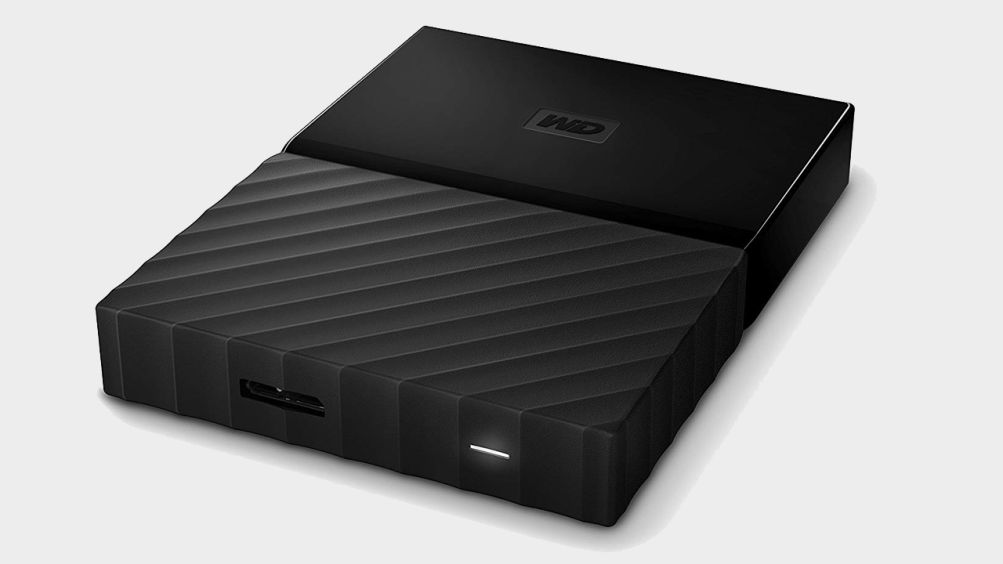
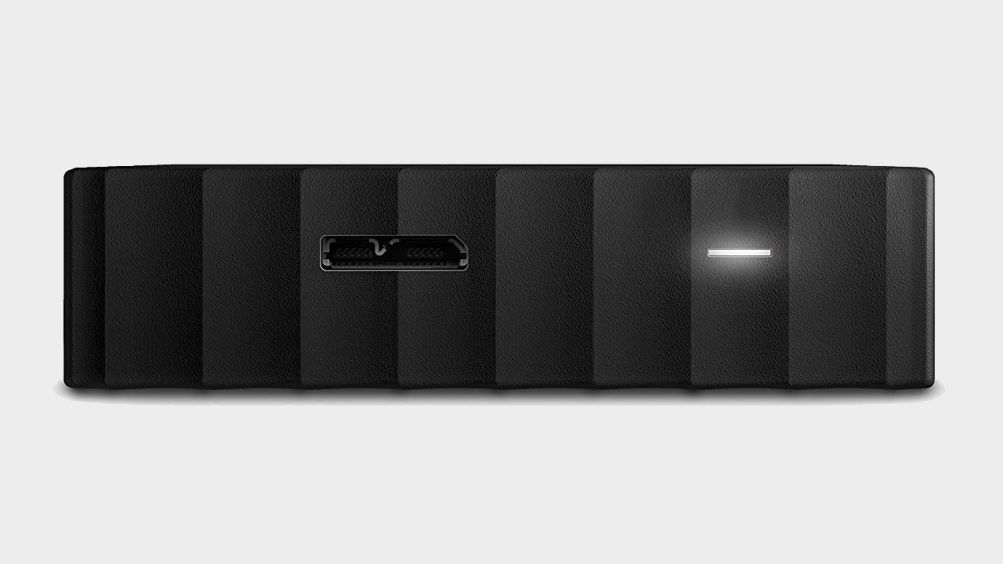
We like WD’s My Passport. It’s not as compact or as fast as Samsung’s T5, and it can’t withstand an armageddon like LaCie’s XtremKey can, but at up to 4TB for $100, it offers copious storage space at a good value. We also like that Western Digital fares well each time cloud backup provider Backblaze releases a hard drive reliability report.
The 4TB model is compact and weighs just 250g. You probably wouldn’t want to try and jam one into a shirt pocket, but they’re almost as portable as a smartphone, just a little chunkier. The 1TB Passport is slightly thinner and weighs 170g if you don't need as much space. It is, undoubtedly, the minivan of external hard drives. No external power supply is needed to use WD’s drive—just plug in the USB cable and start backing up your files. You can also install WD’s backup software to automate the process.
With 4TB of storage at your disposal, you can save:
– Up to 4,000 hours of digital video
– Up to 1,000 2-hour DVD movies
– Up to 1,280,000 digital photos
– Up to 66,640 hours of digital music
WD also goes the extra mile with password protection and hardware encryption. And if you’re looking to make a fashion statement, you can select a My Passport in a range of color options.
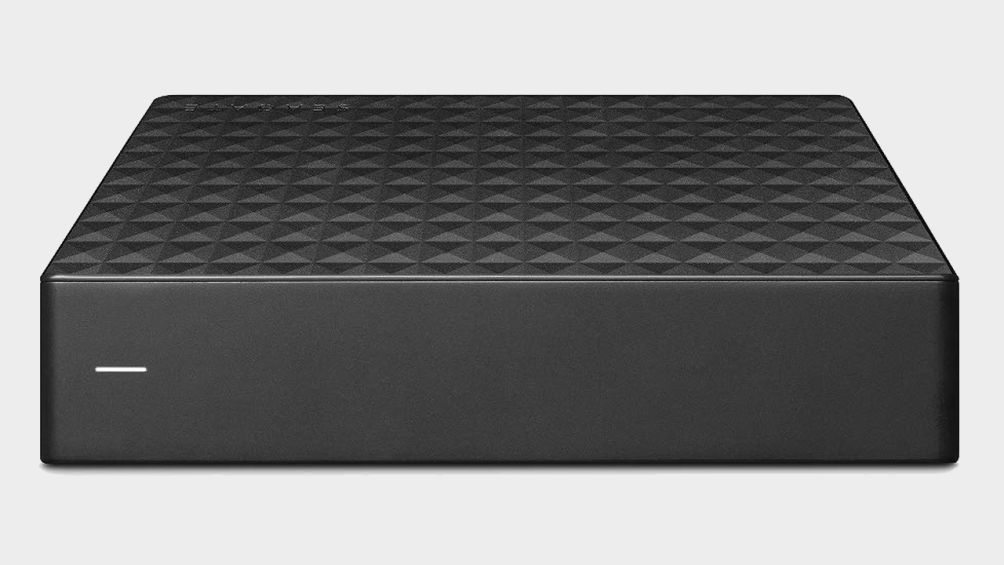
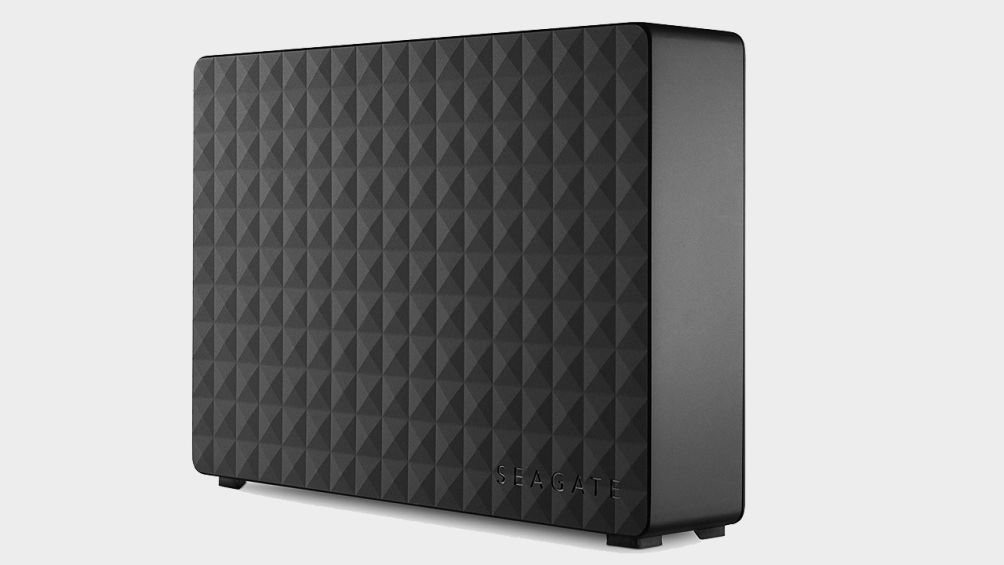
If you need to go big when you leave home, Seagate's 8TB Expansion drive is the way to go. It's not exactly the best external hard drive; you don't get the best speeds when you're transferring files—although they're not too far behind the WD My Passport—what you get is masses of space and a very reliable drive. While there's no real point in getting a Seagate with less than the maximum capacity, its speeds are quickly eclipsed by other drives, the 8TB version strikes a nice balance between capacity and efficiency.
It hits around 150MB/s during both read and write tests, which is about mid-range for HDDs, but in terms of price you can get this drive for around $130 (£120), or even go up to 10TB if you're feeling particularly storage hungry. That's way better than you'll find on SSDs and actually beats most internal HDDs if you start comparing them.
It's USB 3.0 compatible too, so you've got a drive that'll plug into most PCs and laptops. In fact, if you're a regular laptop user, this is super handy for extending the pitiful storage you find in most machines. Just as a word of warning, though: this does require external power and comes with its own power unit, so it's slightly less portable than other drives.
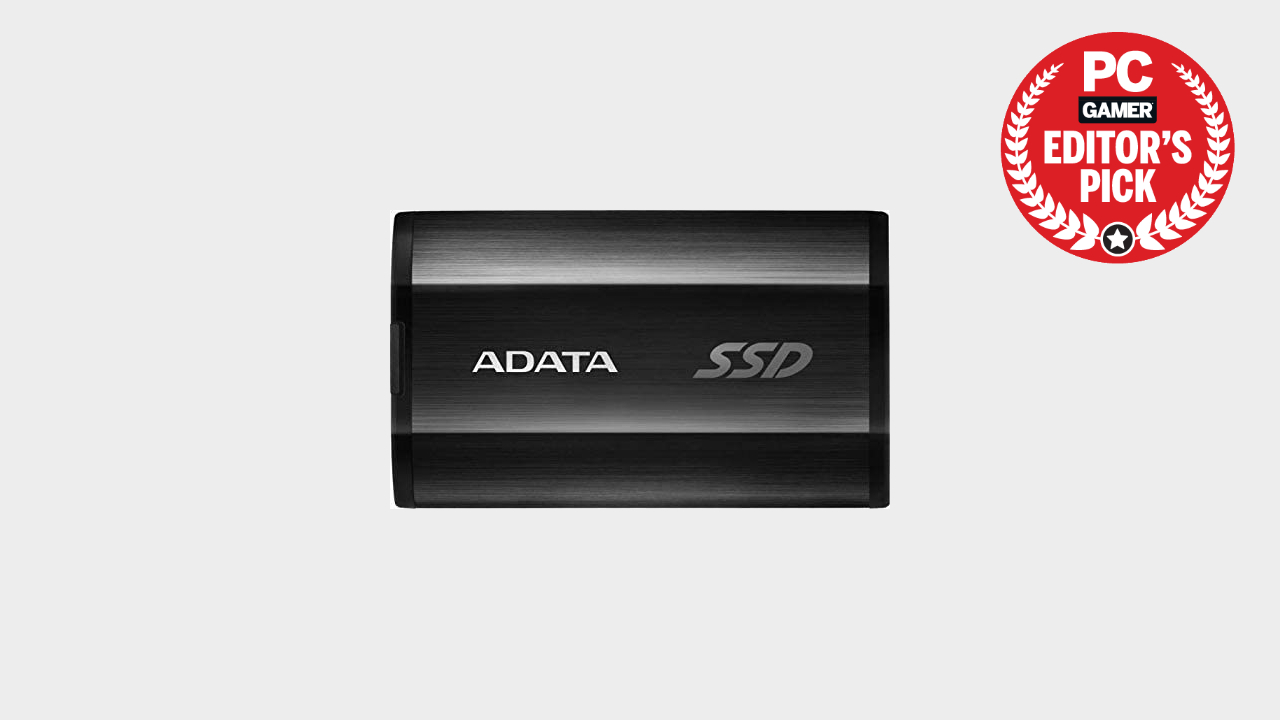
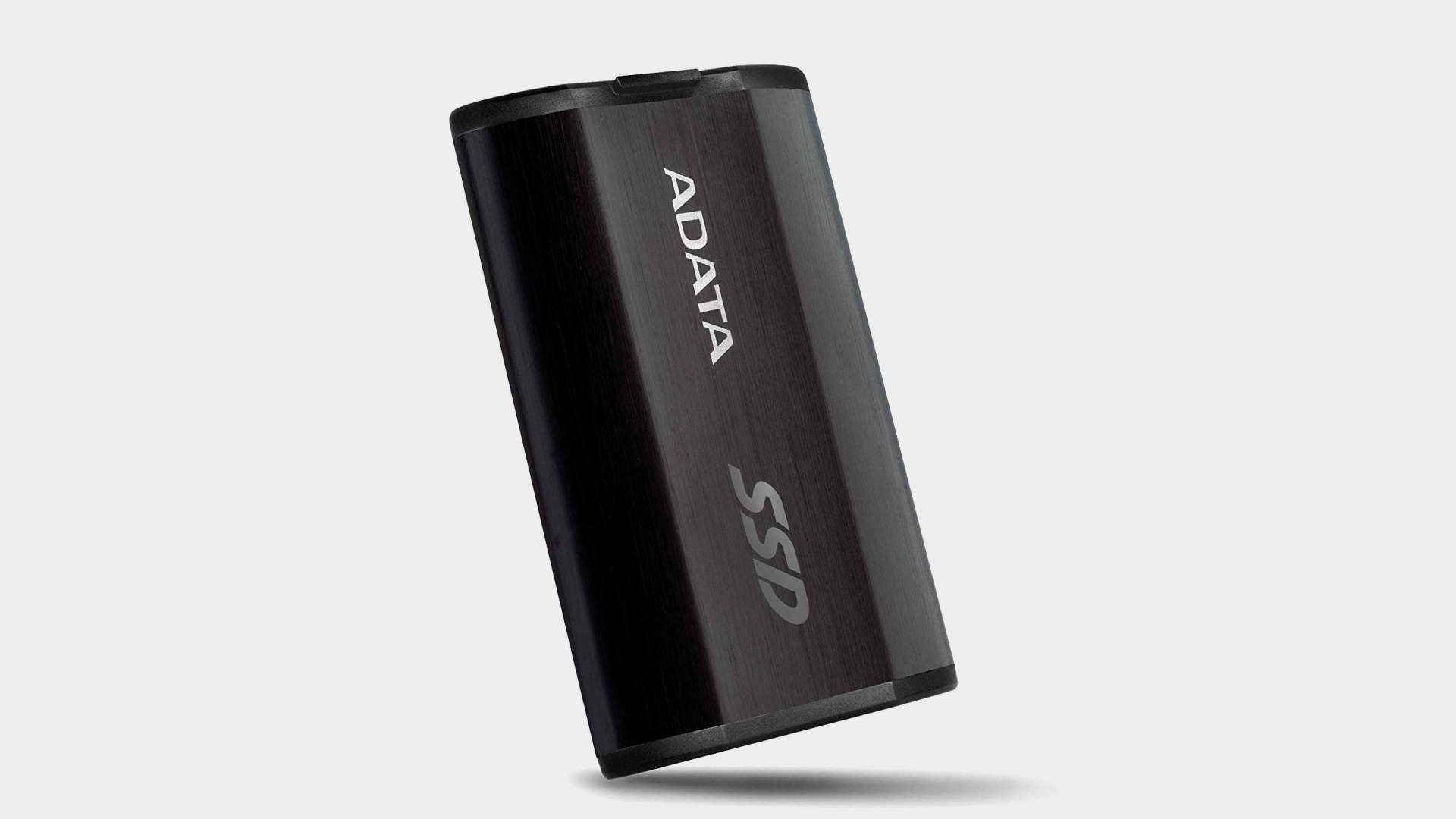
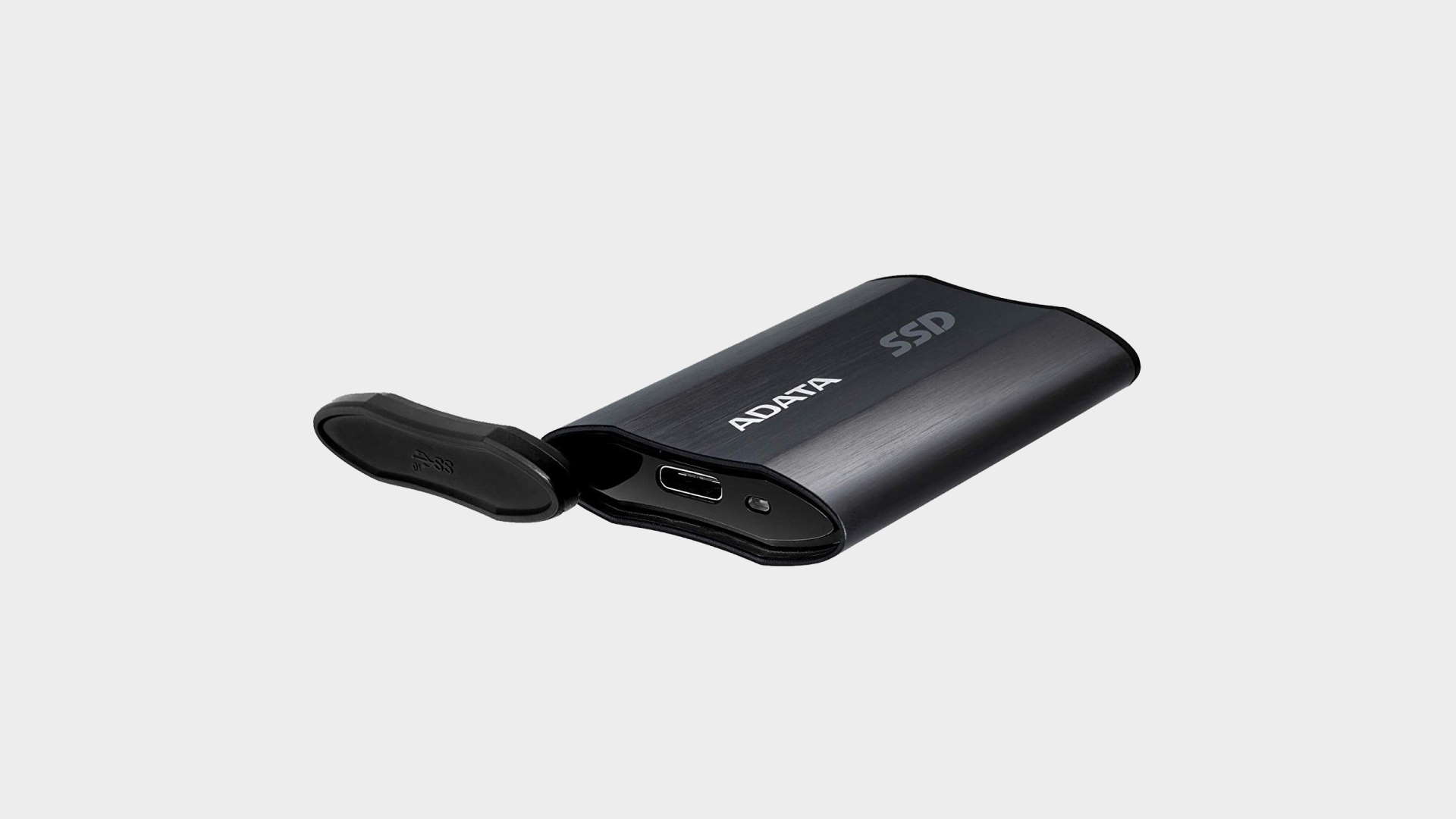
NVMe inside? Yep. TLC NAND memory? Affirmative. IP rating for increased robustness including waterproofing? Check. All for an attractive price? Confirmed. The Adata SE800 Ultra FAST 1TB really does have quite a bit going for it.
It starts with that NVMe SSD, bridged to a USB interface. In this case, it’s a 10Gbps USB 3.2 Gen 2 interface rather than a 20Gbps USB 3.2 Gen 2×2 connection. But this drive is still claimed to be good for 1GB/s data transfers in both directions. Lest you have forgotten, that’s around twice as fast as any SATA-based drives, including internal SSDs connected natively via SATA.
It’s also nice to see that Adata has equipped the SE800 with TLC rather than QLC NAND memory. The latter is typically slower and offers lower write endurance. All very nice, but what is really unusual is the SE800’s IP68 rating, a characteristic hinted at by the pop-off cover over the USB Type-C port. It means the drive is rated as impervious to dust ingress and can survive immersion in up to 1.5 meters of water for 30 minutes.
That makes it unique among these SSDs and, what’s more, given the competitive pricing you’re getting that IP rating effectively for free. Performance-wise, in testing the Adata delivers in the headline 1GB/s spec for sequential transfers while notching up 4K random throughput that’s comparable to the competition at 21MB/s for reads and 40MB/s for writes. The only slight chink in the SE800’s armor is that sustained performance drops down to around 260MB/s after around 15GB of internal drive traffic. That’s a little off the pace of some alternatives. But it’s not enough to spoil an otherwise highly appealing package.
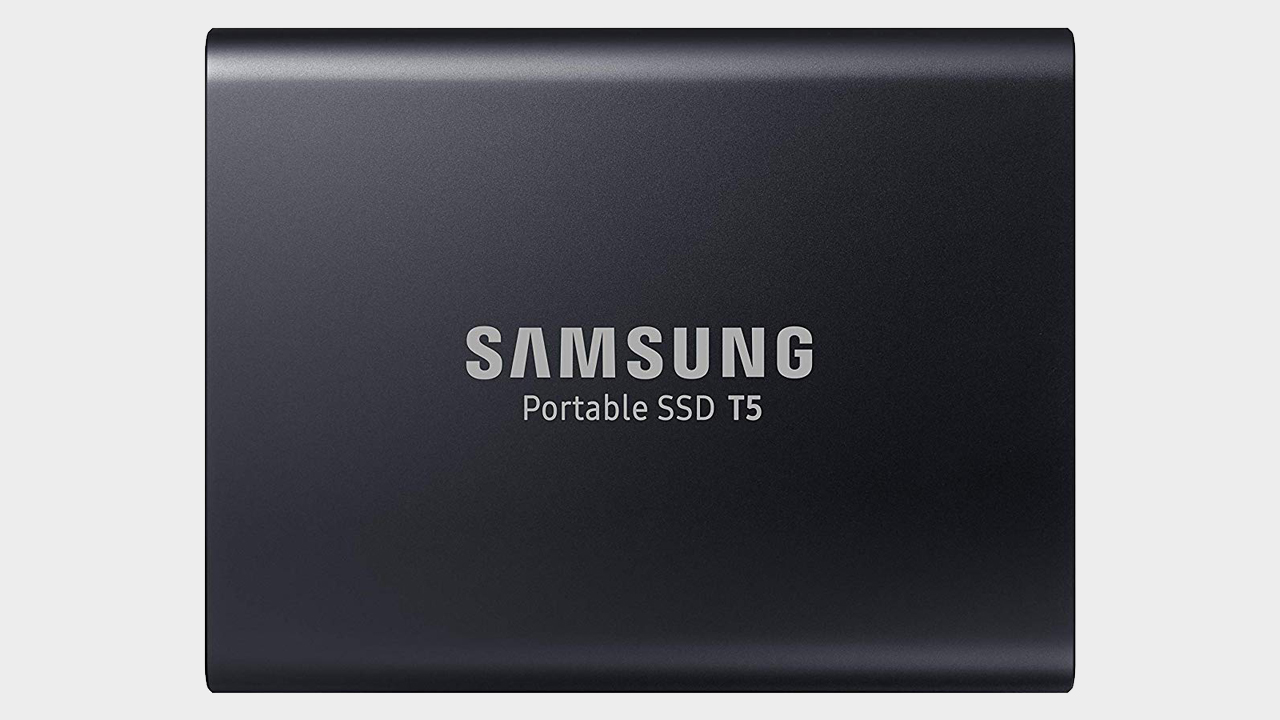
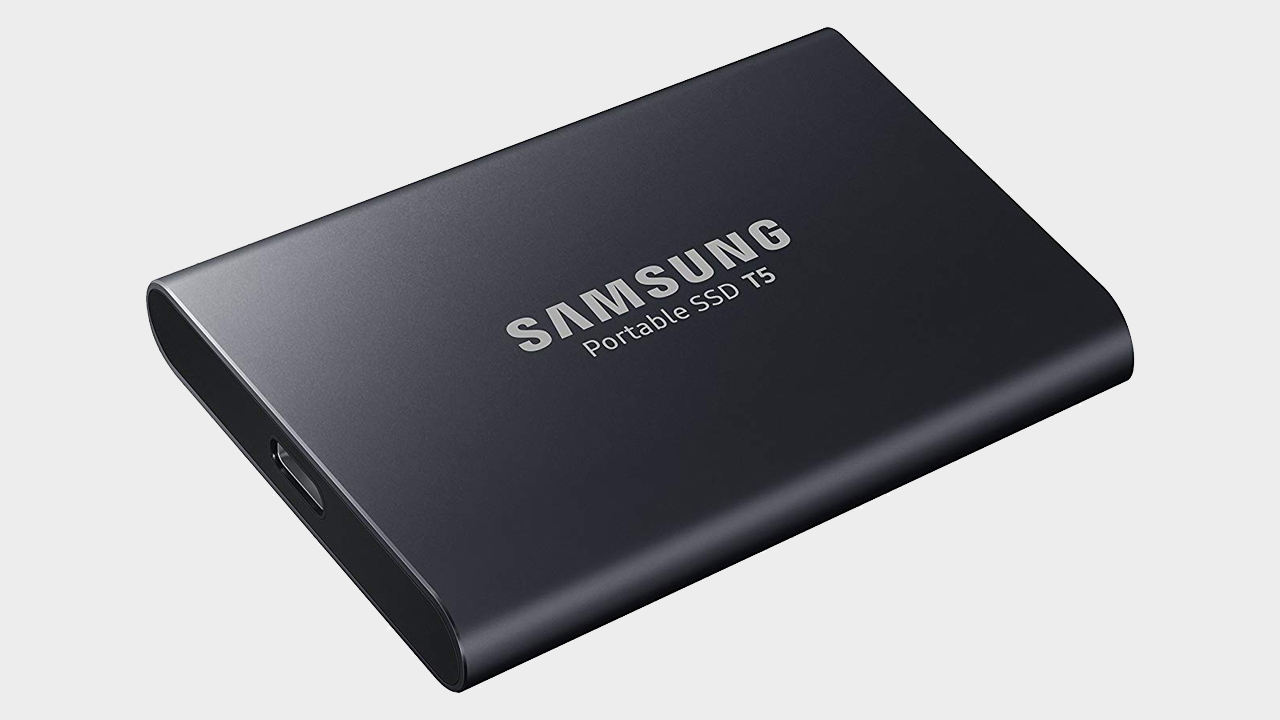
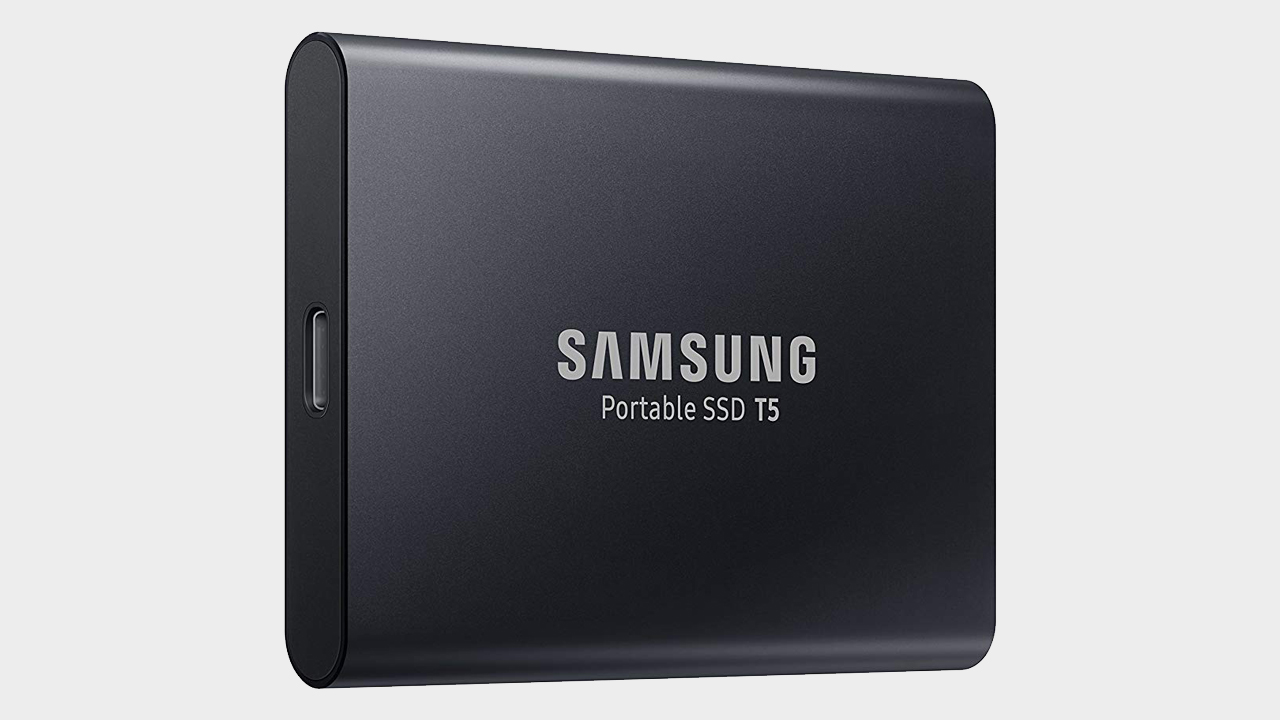
Samsung's external drives have generally been for the power user who wants it all—speed, capacity, and portability—but who is willing to pay a premium for it. Samsung’s Portable SSD T5 is one of the slickest solutions out there, and now it's got a slightly more reasonable price tag.
The Samsung T5 is still faster than any USB flash drive available, it has the capacity of a hard drive, and you can carry it inconspicuously in your pocket. This spunky little drive shares the same DNA as Samsung’s 860 Evo SSD, just in a smaller package. It has a USB 3.1 Type-C connector, giving a maximum theoretical throughput of 10Gbps. We pitted it against a 512GB Samsung SM951 NVMe SSD connected over Gigabit Ethernet. The T5 ran the table in all eight CrystalDiskMark benchmarks and proved significantly faster in reading and writing game files and large files.
Speed doesn’t come at the expense of storage space. While it’s easy to bump into the storage ceiling of a 32GB, 64GB, or even a 128GB USB flash drive, you’ll find there’s much more breathing room when dealing with terabytes of space, which is what the T5 offers. Whereas the first generation T1 topped out at 1TB, Samsung was able to double the maximum capacity of the T5 to 2TB, a result of upgrading from 32 to 48 stacked layers of V-NAND flash memory cells for a denser configuration.
Best gaming laptops | Best gaming keyboards | Best gaming mouse
Best gaming motherboards | Best graphics cards | Best gaming monitors
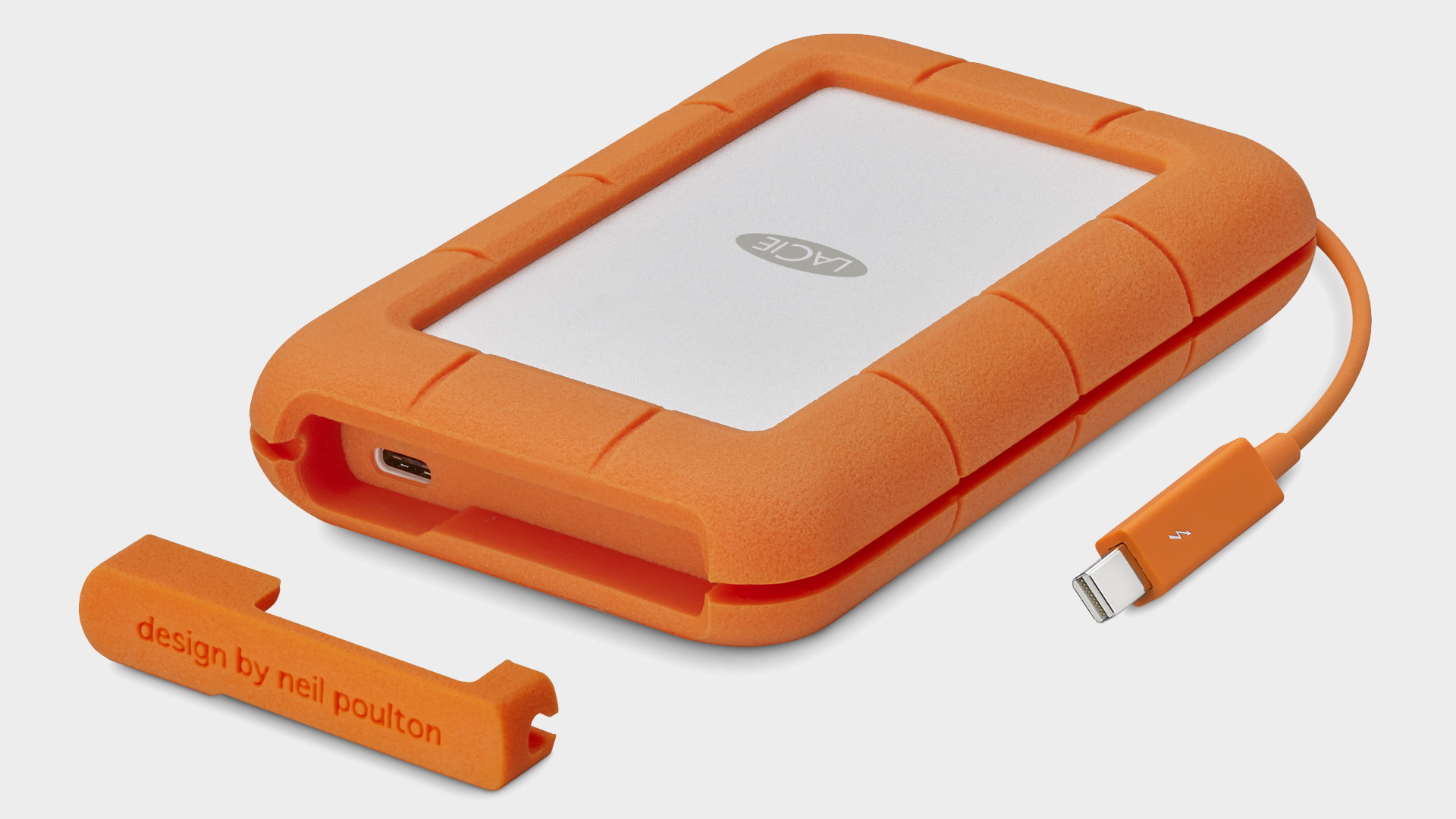
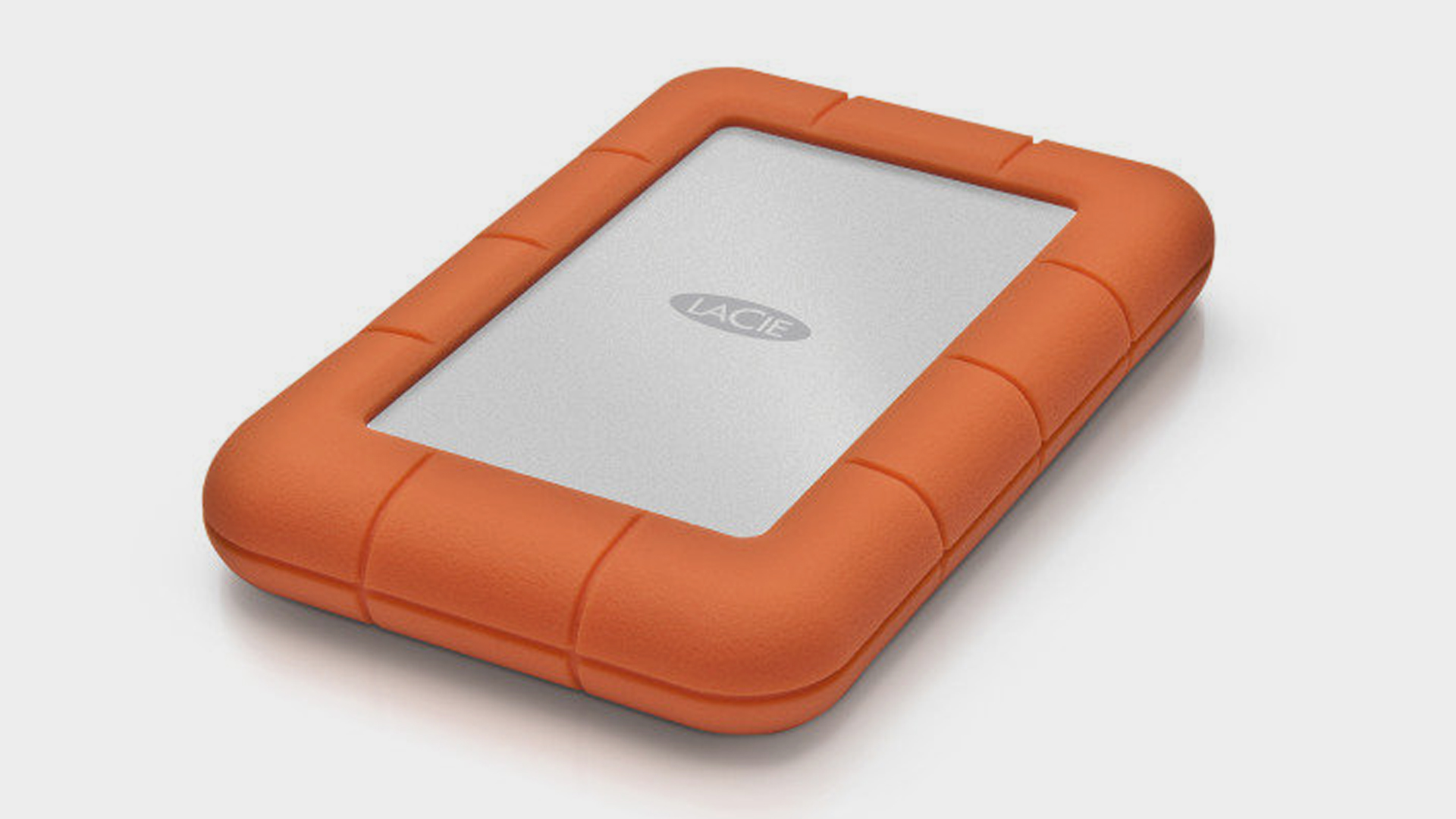
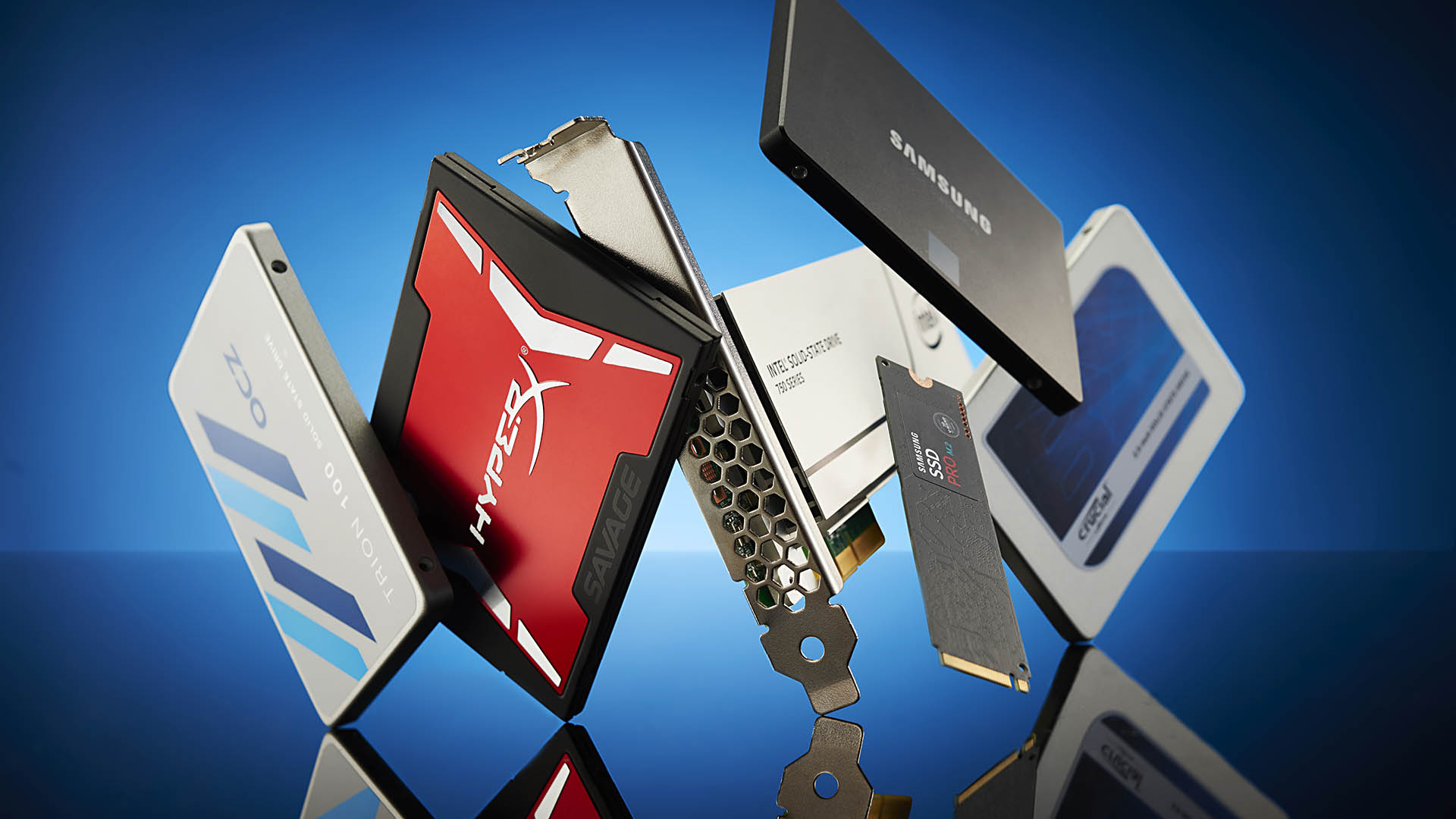
Best SSD for gaming: the best solid state drives around
Best PCIe 4.0 SSD for gaming: the next gen has landed
The best NVMe SSD: this slivers of SSD goodness
Best external hard drives: expand your horizons
Best external SSDs: plug in upgrades for gaming laptops and consoles
When you think about what external hard drives are actually used for, then suddenly durability becomes essential. While it might look like a doggy chew-toy, the LaCie Rugged portable HDD is as tough as they come, and even has a rubber cover around the edges to dampen the shock from any impacts. DO NOT TRY THIS AT HOME, but you can drop this thing from a fair height and it'll stay perfectly intact.
The speeds it operates at are respectable, if on the lower end of the scale, hitting about 110MB/s in read and write tests. You can pick up the LaCie relatively cheap too, although you are paying a little more for durability, so you're looking at about $110-120 for a 2TB model, and $100 for a 1TB. We'd recommend the 2TB, purely because this will last you so long it'll store your files for years.
If you're someone who is a little careless with how they pack their bag, or you genuinely take your PC files on more extreme outings, then this is the external HDD for you. It comes in all kinds of variations, to suit all connection types, including USB 3.0, mini-USB, USB Type-C and multi-input versions.
Best external hard drive FAQ
What type of external hard drive is best?
Your two main options for external drives are a traditional spinning platter hard drive (HDD), and solid state drive (SSD). Your SSD is more akin to a standard USB stick where you’re storing all the data in little flash memory chips rather than writing it onto a metal platter. That makes them more robust, but also more expensive and lower capacity.
Hard drives are still valuable in that they can provide cheap, seriously large volumes of data storage. And if you don’t need to access that data quickly or regularly they’re just fine. Transfer speeds of hard drives really are a fraction of what you’ll get from a quality SSD.
An SSD, however, is far quicker and generally smaller, which makes them more portable. Their speed means that they’re far better suited to being an extension of your game library in that you can actually play directly from the SSD itself.
Which lasts longer: SSD or HDD?
Generally SSDs are the more durable of the two. They don’t have any moving parts and are more resistant to temperature and shock… such as being tossed in a bag and dropped. But carefully looked after, a hard drive can last for years without problem.
What are the disadvantages of SSDs?
The main disadvantage is their price/capacity metric. They are more expensive to make, therefore you will get less storage capacity for your money with an SSD than with a hard drive.
The other disadvantage is that it is much harder, often impossible, to recover lost data from a solid state drive. Though if you’ve shattered your HDD to pieces then the same could be said for it, too!
- "
- 000
- 100
- 1TB
- 2022
- 4k
- About
- access
- All
- among
- around
- auto
- available
- Backup
- BEST
- Biggest
- Bit
- breathing
- cable
- Capacity
- case
- Chips
- Cloud
- comparison
- competition
- Competitive
- could
- credit
- data
- data storage
- dealing
- digital
- dna
- down
- Drop
- dropped
- During
- efficiency
- encryption
- Endurance
- essential
- Expand
- expansion
- expensive
- fair
- Fashion
- FAST
- fine
- First
- Flash
- forgotten
- Fortnite
- Free
- future
- game
- Gamers
- Gaming
- Giving
- good
- grab
- graphics
- Handy
- Hard Drive
- Hardware
- headline
- here
- higher
- Home
- How
- HTTPS
- Hungry
- i
- ICON
- image
- immersion
- important
- Including
- install
- interface
- IP
- IT
- Key
- laptop
- laptops
- large
- Library
- Long
- looked
- Machines
- MAKES
- maximum
- May
- Memory chips
- metal
- model
- Modern
- money
- more
- Music
- Offers
- open
- Options
- Other
- passport
- Password
- Pay
- PC
- PCs
- performance
- play
- Point
- power
- Premium
- price
- pricing
- Process
- protection
- quality
- range
- RE
- Reading
- recommend
- Recover
- Releases
- report
- room
- rubber
- s
- Said
- Samsung
- Scale
- Shares
- smaller
- smartphone
- So
- Software
- Solutions
- Space
- speed
- start
- State
- Statement
- stay
- storage
- store
- Strikes
- supply
- survive
- t1
- talking
- Testing
- tests
- The
- Through
- time
- traditional
- traffic
- transfers
- Ultra
- unique
- unusual
- Update
- upgrades
- usb
- usb flash drive
- value
- version
- View
- Water
- weighs
- Western Digital
- What
- What is
- WHO
- writing
- years
- yourself
